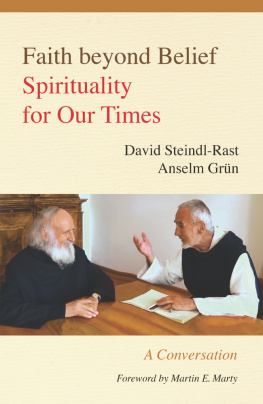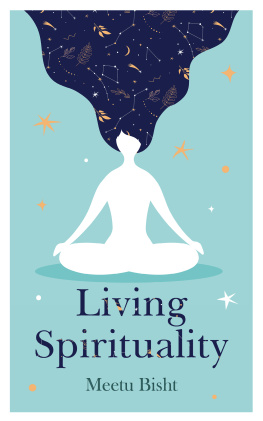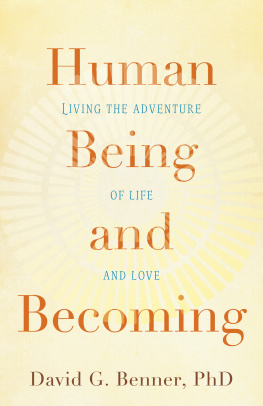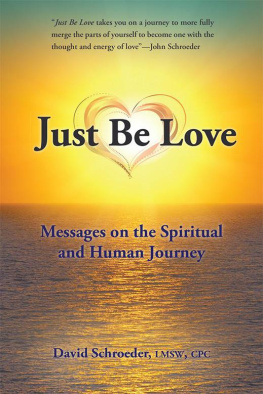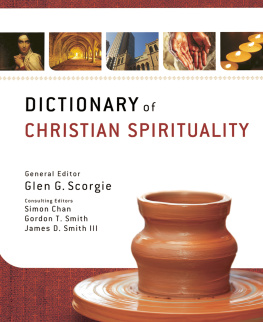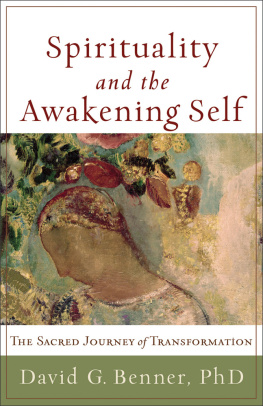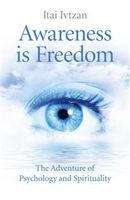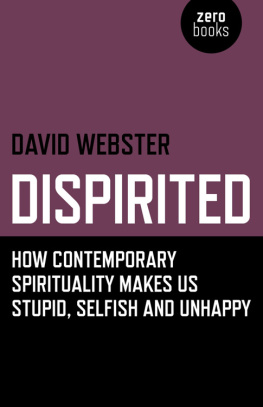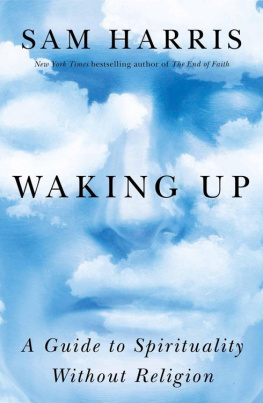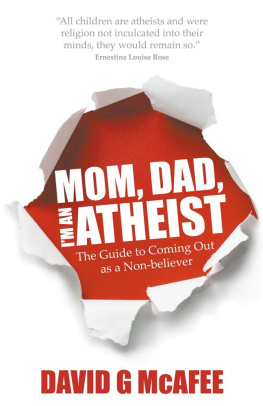Optimistic
Nihilism
Optimistic
Nihilism

A Psychologists Personal Story
& (Biased) Professional Appraisal
of Shedding Religion

David Landers, Ph.D.
IM Print Publishing
Austin
Thank you for purchasing this book!
A portion of royalties will be donated to hunger charities.
Feel free to communicate with the author at
facebook.com/OptimisticNihilism
Twitter: @Opti_Nihilist
2016 by David Landers. All rights reserved.
However, you likely do not need permission to quote this book. The legal doctrine of fair use permits you to quote reasonably sized portions of a work such as this for the sake ofamong many other thingscriticism, comment or research. Just cite the source accordingly. For more information about quashing the Culture of Fear and Doubt surrounding copyright practice, see Reclaiming Fair Use: How to Put Balance Back in Copyright by Aufderheide & Jaszi (2011, University of Chicago Press).
Personal stories from Davids clinical practice herein have been used with permission and/or thoroughly disguised to protect the confidentiality of the persons involved.
General cover concept by Matthew Arnold, cargocollective.com/mattarnold
Other graphics and consulting by Lance Myers, lancefever.com and Egan Jones, eganjones.com
First Edition;
ISBN 13: 978-0692440780
ISBN 10: 069244078X
For my mom, whose hard life was not a test, experiment, or example.
Annihilation has no terrors for me, because I have already tried it before I was borna hundred million yearsand I have suffered more in an hour, in this life, than I remember to have suffered in the whole hundred million years put together. There was a peace, a serenity, an absence of all sense of responsibility, an absence of worry, an absence of care, grief, perplexity; and the presence of a deep content and unbroken satisfaction in that hundred million years of holiday which I look back upon with a tender longing and with a grateful desire to resume, when the opportunity comes.
Mark Twain
When I consider the brief span of my life, swallowed up in the eternity before and behind it, the small space that I fill, or even see, engulfed in the infinite immensity of spaces which I know not, and which know not me, I am afraid I marvel that people are not seized with despair at such a miserable condition.
French mathematician/philosopher Blaise Pascal (born 1623)
Contents
Introduction
IVE WRITTEN THIS BOOK largely in response to modern popular books on atheism, such as Richard Dawkinss The God Delusion and Christopher Hitchenss God is Not Great. Although I agree with the vast majority of the sentiments presented in these works, I find the authors tones unnecessarily condescending and hostile towards believers.
If we modern atheists truly want our message to be heard, we need to rein in the vicious and degrading attacks. Hostility never convinced anyone of anything; its only engaging for the people who are already on your side. Anyway, everyone should know by now that faith, by definition, is exempt from logical argument. Well make a lot more progress if we can just calm down and live by example. (Not to mention, our hostility suggests that we are insecure, which we should also examine.)
So, my book employs a different approach, being a more personal and (hopefully) poignant read. As I share how I ventured from being a very devoted, God-fearing child to a profoundly atheistic adult, youll see that I was miserable as a Christianon the brink of suicide at timesbut have been much more functional and content since converting to atheism. Now, if you dont enjoy autobiography so much, dont be discouraged: A clinical psychologist by trade, Im able to tell my story with frequent interjections of psychological discussion, the stuff that everyone likes to read about, such as mental illness, drug addiction, and even violence.
Although not degreed in philosophy Ive studied it informally for much of my life, so Ill also include input from the masters, from Lucretius to the band Suicidal Tendencies. Be aware that Ive tried to keep the psychological and philosophical discourse intellectual and provocative while accessible toand perhaps even fun forthe lay reader. I want my book to appeal to Richard Dawkins and his disciples, but also to high school students and such who are only just beginning to ask questions about spirituality.
sets the stage for the rest of the book, being a casual conversation about contacting reality and being honest about it, potentially always. As far as religion is concerned, I believe that we actually all know the truth deep down (that its the product of humans, not divinity), the more interesting issue regarding how much of that truth each of us is willingor ableto endure.
In through 4 Ill disclose how my home life as a devoted Christian child was fraught with turmoil and even abuse, leading to dangerous substance addiction as a teen and onward to significant mental illness as a young adult.
In ) has contributed as well simply by making so much sense. Evolution really is beautiful, the more you understand it. In fact, many of us atheists find a godless creation much more fascinating and precious than one created by any deity.
is the most Dawkins-esque chapter of the book, as we discuss the toxicity of religion. I try to keep it civilized, but arguably violate my own proposition that we drop the hostility. Its hard to not get angry, and Ill explain why.
frankly exploring nihilism. Nihilism, as used in this book, is the position that there is no objective purpose to or transcendence from our lives beyond that endowed by evolution: that is, making and raising babies. However, Ill argue that this perspective doesnt have to entail chronic despair. On the contrary, I will explain (as have others) that such a nihilistic perspective may ironically be the one that honors reality the most. It helps us to be present in every moment and to be sensitive to the existence of others, as well as to the universe at large, much more than an authoritarian commandment ever could.
is a more personal snapshot of myself at the time of this writing. Im asking readers to spend some time in the mind of a self-described nihilist and see what its like. Its probably not what most people would expect.
winds it all down with some relatively explicit advice on how all of usatheists and believers alikecan approach living in a more wholesome manner, based on some of the principles well have discussed throughout this book.
Finally, Ive included an appendix that complements the self-help feel of but does not discuss spirituality directly at all. Here, I present the often-ignored but exceedingly invaluable topic of emotional validation. Emotional validation is the interpersonal dynamic in which we attend to and acknowledge the inner experiences of others, especially those of our growing children but also those of the adults in our lives. Comprehending these dynamics should enrich your life, regardless of how spiritual you are. If nothing else, it may help explain why a psychologist like myself is so obsessed with being in touch with reality.
CHAPTER 1
Ignorance and Bliss
The great boon of repression is that it makes it possible to live decisively in an overwhelmingly miraculous and incomprehensible world, a world so full of beauty, majesty, and terror that if animals perceived it all they would be paralyzed to act
Next page

